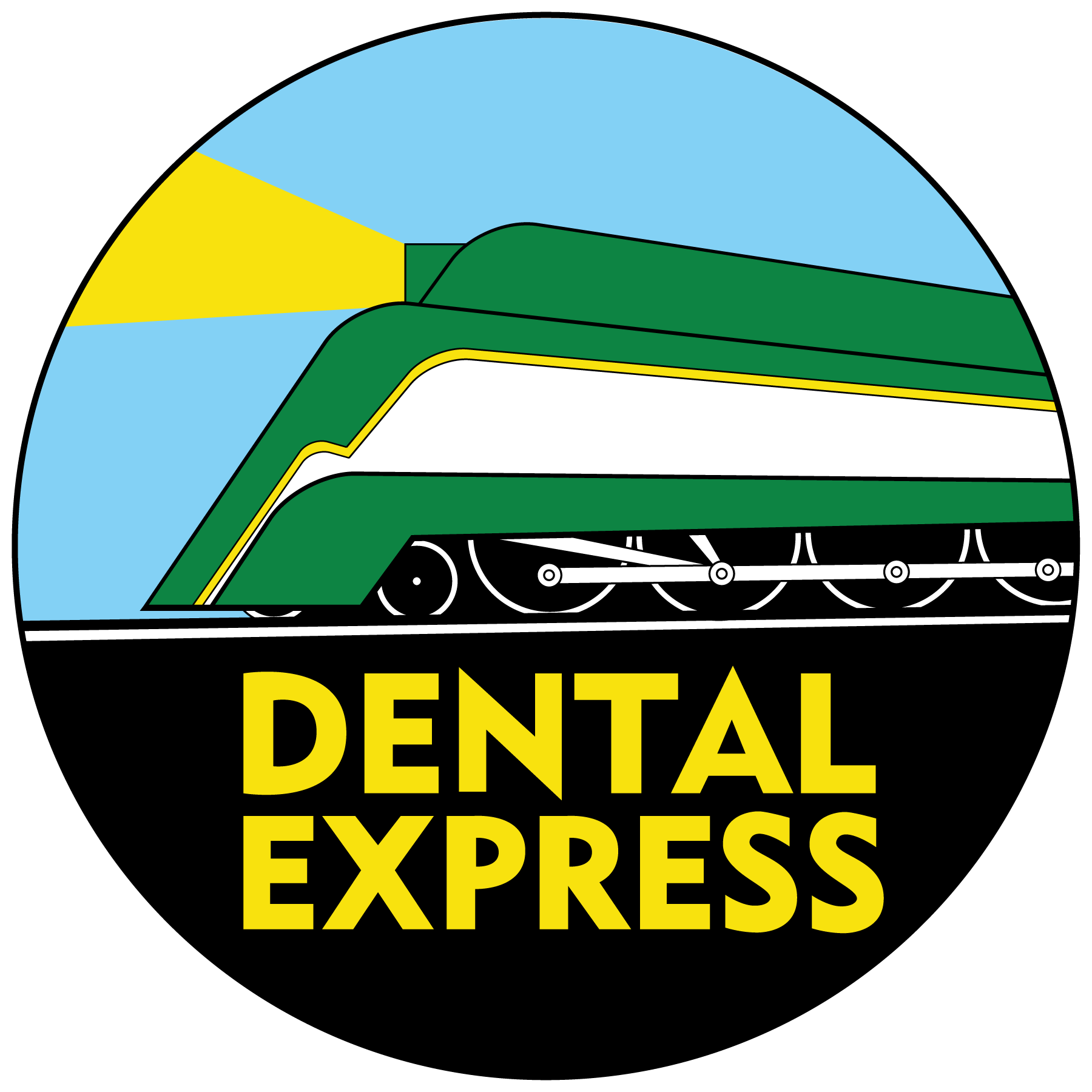Dental care only gets more important as we age. Learn the common dental concerns and essential tips for healthy smiles over 65
As we age, natural changes occur throughout our bodies that can impact our health in any number of ways…
And dental health definitely falls under that umbrella.
But what changes should you expect as you grow older and wiser? And how can you make sure your mouth stays in top shape despite those changes?
At Dental Express, we’re on a mission to demystify dental care for people of all ages, and this week is all about adults over sixty-five.
So, follow along as we break down potential dental health risks for seniors, and best practices for combating and preventing them.
Common Dental Health Concerns for Adults Over 65
As our age increases, so does our risk for certain dental health conditions.
Once we reach the sixty-five mark, we’re much more likely to develop issues that can affect everything from our bites to our ability to maintain healthy dental care habits at home.
Below, we’ve put together a list of these senior dental health concerns, so whether you’re using them personally or as a caregiver, you’ll know what to look out for:
- Cavities – As you get older, your risk of cavities increases. Decades of eating acidic foods, drinking, chewing, and chomping down take their toll on your enamel, leaving your teeth more vulnerable to decay. Dry mouth can also contribute to the development of cavities.
- Dry mouth – The American Dental Association (ADA) states that dry mouth or xerostomia affects 30% of patients older than sixty-five and up to 40% of patients older than eighty years. With stats like these, it might surprise you to learn that dry mouth isn’t a natural part of the aging process. It’s usually a side effect of prescribed or over-the-counter medications for pain, blood pressure, asthma, and depression. However, it’s also associated with conditions like Alzheimer’s disease, Parkinson’s, and diabetes.
- Trouble chewing or biting down – As enamel weakens over time, chips, cracks, cavities, and other dental health issues are more likely to occur, which can make it challenging to bite down and chew your food.
- Periodontitis – Like the incidence of cavities, the risk of periodontitis also increases with age. With normal wear and tear and age-related gum recession, periodontal disease has a much easier time taking hold in your mouth as you get older.
- Missing teeth – Whether from a lifetime of use or dental emergencies, missing teeth are far more common in older adults. In fact, research shows that the average senior over sixty-five years old has about nineteen out of thirty-two of their natural teeth left. Missing teeth can not only make it harder to chew, but may also cause further bone loss and decay in surrounding teeth.
- Physical limitations – Conditions that affect mobility can dramatically impact how well a person can maintain their dental health. For example, an older adult with arthritis in their shoulders and hands may find it too difficult to brush and floss their teeth properly.
- Oral cancer – This life-threatening condition pops up around 35,000 times every year, and according to the ADA, the average age of those diagnosed is sixty-two. Oral cancer is caused by mutations in your mouth cells’ DNA. Scientists are unsure why these changes happen, but known risk factors include tobacco use, excessive alcohol consumption, too much time in the sun, human papillomavirus, and a vulnerable immune system. For an in-depth guide outlining signs, symptoms, and preventive strategies, check out our article on how to easily identify and prevent oral cancer.
Now, we don’t mean to go all “doom and gloom” on you, but this is why dental care is so crucial as we age. Any one of these dental health issues can become a serious threat if you’re not careful.
So, let’s talk about the best ways to fight them!
Essential Dental Care Tips for Seniors
As nice as it would be to have an invincible set of teeth, it’s pretty much impossible to avoid at least some kind of age-related decline in dental health.
But with the right dental care habits at home and some help from your San Diego dentist, you should be able to keep your risks nice and low.
Brought to you by the Dental Express clinical team with some extra help from the ADA, the following list is your guide to maximizing your dental potential and maintaining a healthy smile as you age:
- Consistent daily dental care – One of the pillars of dental health is daily brushing with fluoridated toothpaste, flossing, and rinsing with mouthwash (if you like). The ADA also states that regular application of fluoride varnish can be helpful.
- Brushing tip: If mobility issues make manual brushing a chore, you can customize a manual toothbrush by attaching a thicker handle to it, or you can invest in an oscillating electric toothbrush with a larger grippable handle.
- Flossing tip: If using traditional floss is too tricky, interdental cleaners like waterpiks, pre-threaded flossers, and interdental brushes can help make cleaning in between teeth much easier.
- Choose a soft-bristled brush and replace it regularly – Medium and hard-bristled toothbrushes can damage both your enamel and gums, which may lead to tooth sensitivity and gum recession. Soft-bristled brushes are the safest option and provide plenty of cleaning power to keep your smile healthy. And to ensure your toothbrush stays effective, replace it every three to four months or as soon as you notice the bristles start to fray.
- Healthy nutrition is key – Another pillar of dental health, nutrition, has a big impact on your smile. To minimize the adverse effects of acidic foods and drinks, the ADA recommends avoiding added sugars and processed foods wherever you can. Instead, reach for natural foods like fruits, veggies, grains, and lean meats. For beverages, try to limit your consumption of sweetened drinks (coffee, juice, soda, etc.) as much as possible.
- Moderation tip: Cutting back on sweetened foods and drinks doesn’t have to mean going cold turkey. If you drink three cups of coffee a day, try reducing it to two for a couple of weeks. Then, once you’re comfortable with drinking two, drop it down to one. The great part about this method is that you can use it for any food or drink. Give it a shot. Your smile will thank you!
- Proper denture care – Oral bacteria don’t discriminate between surfaces. It can latch onto dentures just as well as natural teeth. So, whether you have full or partial dentures, make sure to clean them every day to get rid of any harmful bacteria and keep your mouth healthy. Also, make sure not to use regular toothpaste to clean your dentures because it can damage them and make them unwearable.
- Don’t miss your regular dental exams and checkups – Regularly seeing your San Diego dentist allows them to check for any unseen issues, re-fit any uncomfortable bridges, dentures, or other restorations, and perform oral cancer screenings. Many people with no remaining natural teeth think they don’t need to see the dentist, but nothing could be further from the truth. With age-related dental health problems, early detection is the name of the game, and routine checkups are the best way to ensure it.
- Offset limited home care with more dentist visits – If you still struggle to maintain your at-home dental care routine even with the above tips, you can compensate by setting up more frequent appointments with your San Diego dentist. Filling in the gaps with professional care can help you stay on the right track and keep your smile strong and healthy.
Providing “For You, About You” Dentistry for People of All Ages
Dental Express in San Diego is here to service your smile at every stage of life.
We specialize in dental restorations like dentures, partials, and bridges, and we have a knack for making dental care comfortable and affordable for our patients.
If you’d like to learn more about senior dental health or set up a consultation, feel free to give us a call at one of our six locations.
We’d be happy to answer any questions you may have, and we’d love to be a part of your dental health journey!
Keep Reading
Need-to-Know Dental Care Tips as You Age
How to Easily Identify & Prevent Oral Cancer

